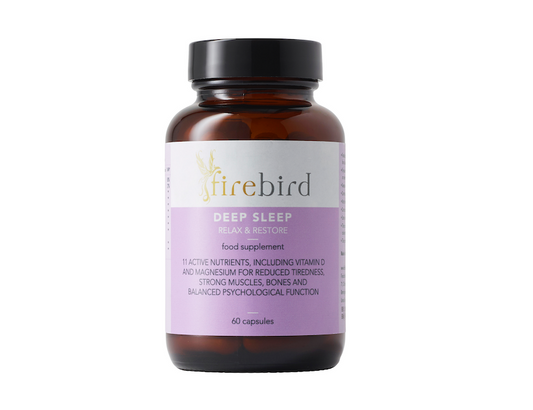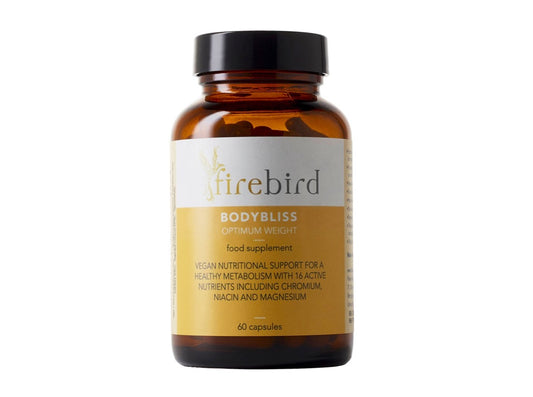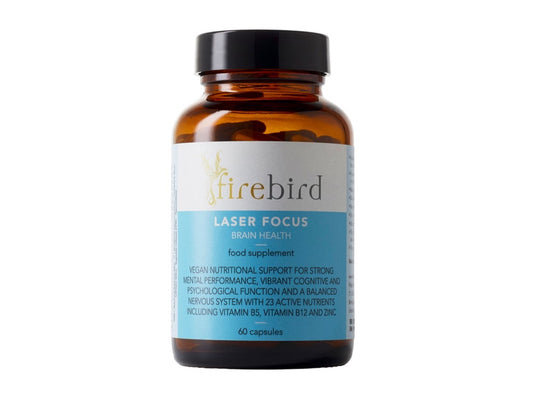
Can a supplement help you sleep?
Sleep is essential to physical and mental health, so making sure we get enough quality sleep is a vital part of looking after our wellbeing. Research is now linking certain nutritional deficiencies to sleep issues, such as insomnia.
The following four nutrients can help support a good night’s sleep:
Found in green leafy vegetables, this vital mineral is critical to hundreds of enzymatic reactions in the body and yet it is estimated that over 50% of people in the Western world are deficient in magnesium. It is essential in energy creation, protein formation, cell division, muscle function, electrolyte balance, psychological function and nervous system regulation. It also contributes to the maintenance of healthy bones and teeth.
Signs of a deficiency can include cramps, tiredness, muscle weakness, irregular heartbeat and sleep issues. Magnesium supports healthy levels of GABA, a neurotransmitter that promotes sleep. Therefore, maintaining healthy levels of magnesium whether through diet or by supplementing with a high-quality supplement, such as MAGNESSENCE® or BODYBLISS® promotes deeper, restorative sleep.
There aren’t many food sources of vitamin D (tuna and salmon are examples) and with many of us not getting much exposure to sunlight at this time of year (the body can synthesise vitamin D through skin exposure to sunlight), it’s easy to fall short of this vital nutrient. Tiredness, bone and muscle pain, low mood, weak immune function and hair loss are a few potential signs of a vitamin D deficiency. Difficulty falling asleep and not getting enough sleep are also signs that have been linked to low levels of vitamin D.
Combat this deficiency with a good supplement, such as MAGNESSENCE®, and get out in the sunshine when you can.
Vitamin B12 is critical for healthy blood formation and, therefore, plays a vital role in supplying the body with sufficient oxygen. A deficit in this essential nutrient leads to tiredness, poor immune function, low mood and shortness of breath. Sleep problems have also been linked to vitamin B12 deficiency
This nutrient is found in animal foods, such as poultry, red meat, eggs and dairy or in a high-quality supplement, such as MAGNESSENCE®.
Vitamin B6 plays a crucial role in the production of neurotransmitters, such as GABA. Specifically it helps the body convert the amino acid tryptophan into serotonin, which regulates levels of the sleep hormone melatonin.
Signs of a vitamin B6 deficiency include tiredness, cracked lips, low mood, weak immune function and difficulty sleeping. Good sources of vitamin B6 include meat, bananas, nuts, seeds, eggs and legumes, but vitamin B6 can easily be depleted by stress, smoking and alcohol consumption, so it may be advisable to top up with a good supplement, such as MAGNESSENCE®.
Developing a healthy pre-bedtime routine can also ensure a good night’s sleep. It is advisable to finish dinner at least a couple of hours before you go to bed, shut down electronic devices at least an hour before bedtime, minimise exposure to blue light and enjoy relaxing, calming activities.
Learn more:
How to work with your circadian rhythm to optimise your health 24/7
The Menopause and how FIREBIRD can help
What is Time-Restricted Feeding (TRF) and how can it help you achieve your weight goals?
Are you suffering from social jet lag?
Why is sleep your best beauty treatment?





